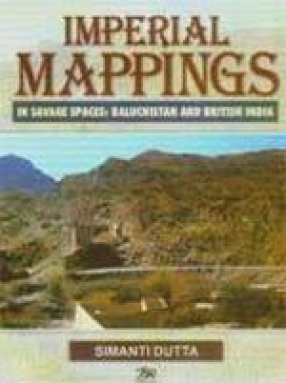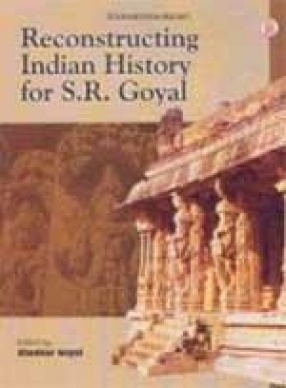This book entitled Imperial Mappings: In Savage Spaces (Baluchistan and British India) is about the signifying form, and symbolic content of imperial boundary making in late nineteenth century India. The time and text of boundary making in the specific area of British Baluchistan, has been used as a lens to view the critical concerns of imperial survival at the edge of power, where possession was always haunted by its loss. This sense of negative displacement, tied to the horror of the ‘savage other’, i.e., the tribal figure cannibalizing culture, and the agonistic play of the ‘great game’ with Russia on the plane of mimetic desire, was the starting point for mapping the empire of perfect order, of utopic permanence. Appropriating the negative in discourse, fictionalized the space of the border as strange and sinister, to provide alibis for the subjugations, that were iconic of dominated space, designed to serve the ends of power. In this dialectic of self and space, the place of the boundary became the plane of narcissistic reflection of appropriated territory, imposed structure, smooth adornment, to confirm the poetics of imperial translations, to render the savage civil, and crypt uncertainty in shows of power, to image the self in signs of perenniality. The intermediacy of the boundary, situated in the gap between permanence and transience may therefore be read as the book suggests, as an allegory of the imperial sublime, affirming the confiscation of natural space, to establish on its ruins the relativized historical place of an intrusive Western subjectivity.
Imperial Mappings: In Savage Spaces, Baluchistan and British India
In stock
Free & Quick Delivery Worldwide
reviews
Bibliographic information
Title
Imperial Mappings: In Savage Spaces, Baluchistan and British India
Author
Edition
1st ed.
Publisher
ISBN
8176462365
Length
xii+132p., Maps; Plates; 28cm.
Subjects





There are no reviews yet.